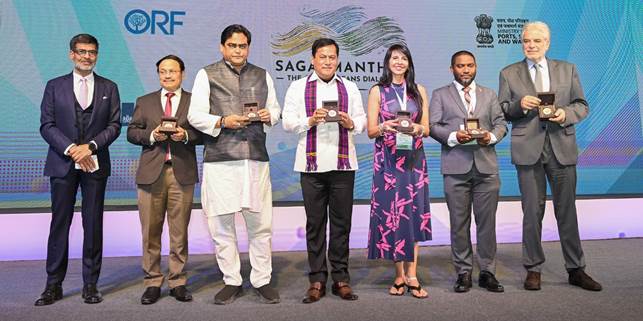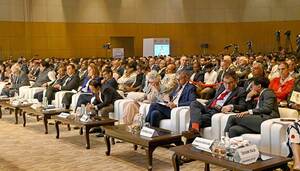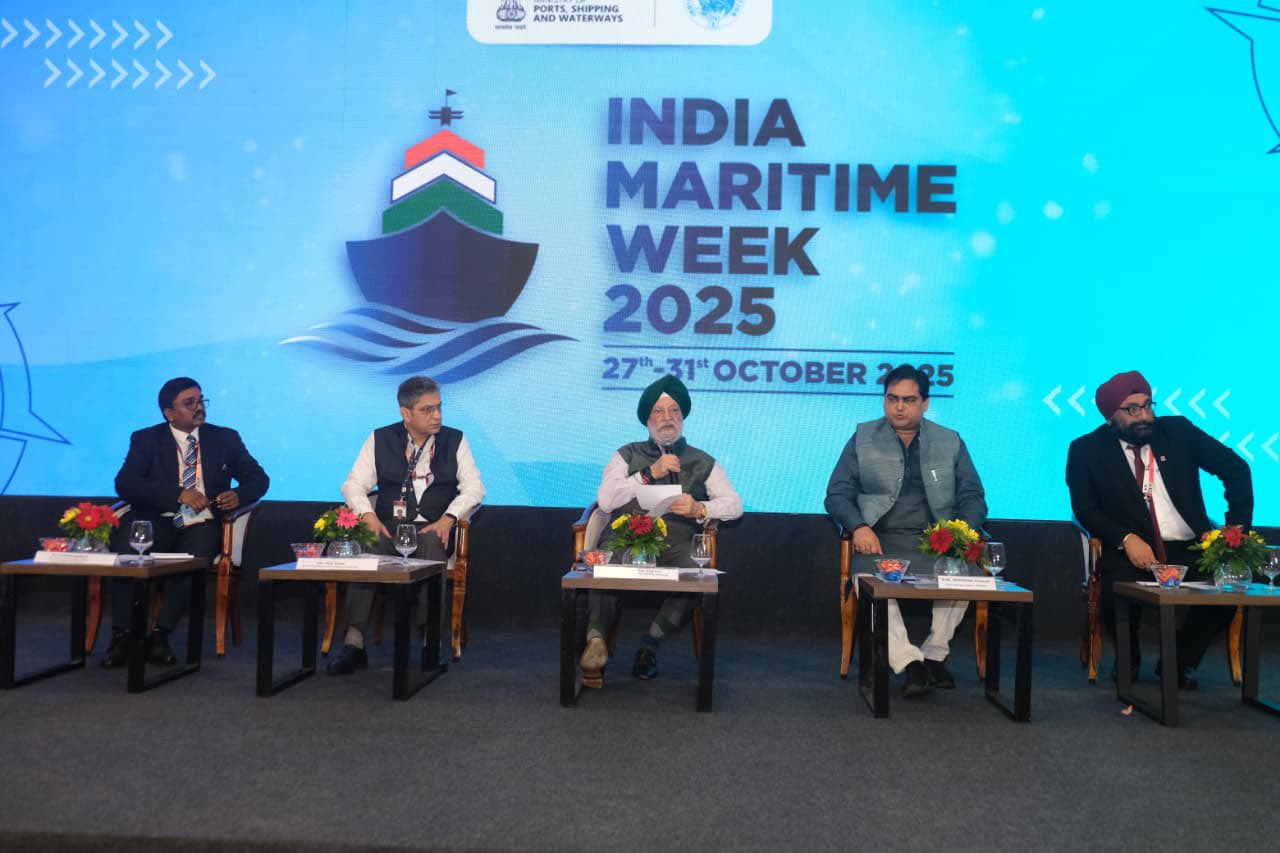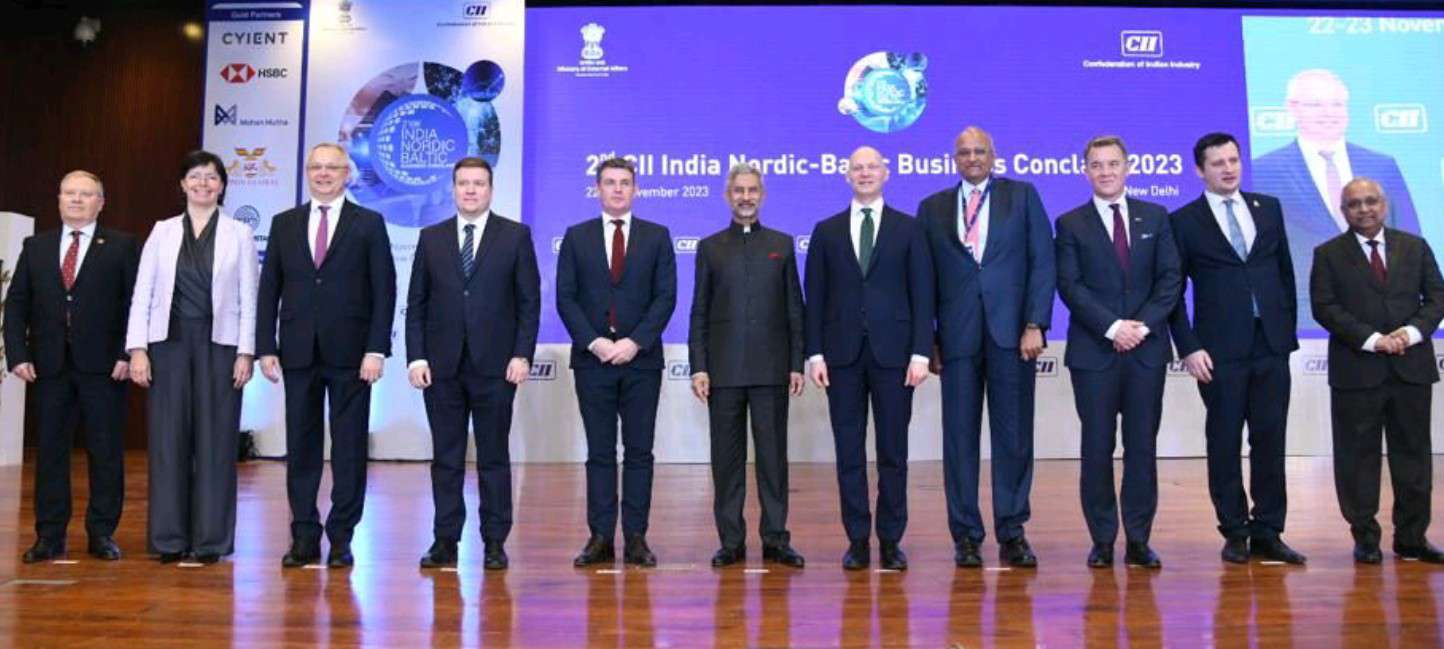Maritime News India : The Great Oceans Dialogue, Sagarmanthan that kicked off on 18 November 2024 in a bid to foster global cooperation in the maritime sector will it really bring in transformation or will just limit to the dialogues. With participation from key policymakers, industry leaders, and maritime experts from over 60 countries, the summit is aiming to explore sustainable development in the Blue Economy for the betterment of humanity.
The event is organised by Ministry of Ports, Shipping, and Waterways, in collaboration with the Observer Research Foundation. The event has successfully gathered over 1,700 delegates, including ministers, scholars, representatives from maritime organizations and press. The two-day summit is featuring discussions on innovation, sustainability, and the future of maritime trade and governance.
India’s Maritime Vision 2047: A Global Gamechanger
Addressing the summit’s opening session, India’s Minister of Ports, Shipping, and Waterways, Sarbananda Sonowal, outlined the ambitious India Maritime Vision 2047. This vision seeks to position India as a global maritime leader, supported by strategic initiatives like Sagarmala and the Maritime Amrit Kaal Vision.
Sonowal highlighted India’s plans to invest ₹80 lakh crores in port infrastructure, including the development of mega ports like the Vizhinjam International Seaport that is run by Adani and new hubs at Vadhavan and Galathea Bay which shall also run in the similar grounds. These projects will increase India’s port handling capacity to 10,000 million metric tons per year by 2047, further solidifying the country’s position on the global trade map.
Focus on Sustainability and Decarbonization
The summit also underscored India’s commitment to decarbonizing the maritime sector. With the introduction of green initiatives like the Harit Sagar Guidelines and the National Green Hydrogen Mission, India aims to lead the world in sustainable maritime practices. In line with this, India is focusing on developing ships powered by clean fuels like ammonia and hydrogen to reduce emissions and support global climate goals.
“The future of maritime transport lies in sustainability, and India is ready to invest in cleaner, greener alternatives,” Sonowal said, further stressing the importance of strategic trade routes such as the India-Middle East-Europe Economic Corridor (IMEEC) in advancing global maritime cooperation.
Global Partnerships for a Stronger Maritime Economy
International collaboration was also a key theme of the summit. Greece’s Minister of Maritime Affairs, Christos Stylianides, emphasized the need for a stable regulatory framework to ensure efficiency, minimize pollution, and enhance resilience in global maritime systems.
On the sidelines of the summit, Sonowal held bilateral talks with Stylianides, discussing ways to deepen India-Greece maritime ties. Both leaders agreed to increase trade between the two nations, aiming to double it by 2030. They also discussed the importance of joint working groups to facilitate cooperation on maritime issues, renewable energy, and cultural exchanges related to maritime heritage.
Technological Innovation at the Forefront
The summit also highlighted technological advancements in the maritime sector, with India showcasing its leadership in port digitization, renewable energy integration, and decarbonized shipping. The government’s push for innovation reflects its broader ambition to become a global maritime hub by 2047.
Sanjeev Sanyal, member of the Prime Minister’s Economic Advisory Council, emphasized the need for global leadership in the maritime sector, urging countries to harness the resources of the oceans sustainably. He stressed, “We have all the ingredients—technology, resources, and a skilled workforce—to lead the maritime sector in the next decade.”
Keynote Speakers and Global Voices
In addition to Sonowal and Stylianides, the summit featured a lineup of influential speakers, including the Minister of State for Fisheries and Ocean Resources from the Maldives, Dr. Amzath Ahmed, and Maria Lorena Villaverde, National Representative for the Province of Rio Negro, Argentina. These leaders stressed the socio-economic importance of maritime industries, particularly for coastal communities, and the need for global partnerships to drive sustainable growth.
The Road Ahead: A Maritime Future of Cooperation
The Sagarmanthan summit is more than just a gathering of maritime experts—it is a call to action for global cooperation in ensuring the sustainable use of ocean resources. With discussions on global governance, technological advancements, and environmental protection, the summit sets the stage for a united effort in shaping the future of the maritime world.
The Challenges: To make Dialogue turn Reality
While the Sagarmanthan summit sets an ambitious agenda for the future of global maritime cooperation, questions remain about the implementation of such large-scale initiatives. The heavy emphasis on infrastructure development, including the expansion of ports and ships, will definitely ensure rise in India’s port handling capacity and economy for the Corporate Companies. But the Ministry also needs to ensure mandatory inclusion of local in the development to increase their economy and livelihood. Moreover such major could lead to environmental concerns if not balanced with stringent regulations on emissions and habitat preservation.
Furthermore, despite the focus on green fuels, there is still a long road ahead for scaling up technologies like ammonia and hydrogen to meet global shipping needs as more than 90 percent Ship and Vessel Owners are not willing to spend on Technology and or developing new Green Vessels.
Additionally, while fostering partnerships with countries like Greece and Argentina is promising, the summit must ensure that the voices of smaller, developing nations are not overlooked, particularly those that face significant challenges in adapting to the rapid pace of maritime technological innovation.





